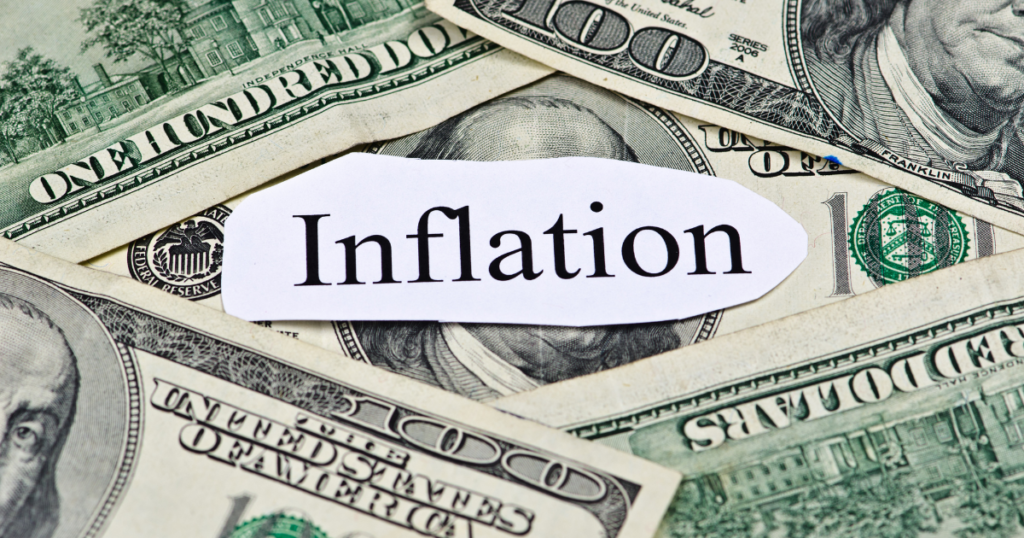In a market characterized by ongoing high inflation, the intricate interplay between economic forces and real estate values becomes increasingly pronounced. Industry experts, equipped with a nuanced understanding of these dynamics, offer essential perspectives on the potential ramifications for home prices. By dissecting the multifaceted impacts of inflation on housing affordability, investment strategies, and market trends, these professionals shed light on the complex web of factors influencing property values. As stakeholders grapple with the evolving landscape, the insights shared by these experts serve as a guide in maneuvering the uncertain terrain of high-inflation environments, directing individuals towards informed decisions in an ever-shifting market.
Understanding Inflation’s Impact on Home Prices
Inflation exerts a notable influence on home prices by intricately intertwining with mortgage rates and housing affordability, ultimately shaping the dynamics of the real estate market. As inflation rises, home prices tend to follow suit, driven by increased mortgage rates and decreased housing affordability.
This scenario poses challenges for potential homebuyers as the cost of homeownership escalates, necessitating a careful evaluation of financial readiness. While sellers may benefit from higher property values, they could face difficulties in acquiring new properties or finding affordable rentals.
Real estate investors, however, can strategically navigate inflation by understanding rental market dynamics and calculating returns on investment to make informed decisions amidst fluctuating economic conditions. By recognizing how inflation impacts home prices, stakeholders can adapt their strategies to thrive in the evolving real estate landscape.
Expert Insights on Housing Affordability
Experts in the real estate industry are shedding light on the challenges posed by current housing affordability concerns amidst rising inflation and escalating home prices. With the average 30-year fixed mortgage rate currently standing at 7.05%, potential buyers are facing obstacles in affording homes, impacting the real estate market dynamics.
Lawrence Yun’s prediction of mortgage rates potentially reaching 6% by year-end further complicates the issue of housing affordability. Additionally, the limited 2.9-month supply of housing inventory reported by the National Association of Realtors is contributing to the scarcity of affordable housing options.
February’s median home-sale price of $384,500 underscores the struggle many buyers face in finding homes within their financial reach, highlighting the pressing need for strategies to address housing affordability challenges.
Navigating the Housing Market Dynamics
Understanding the complexities of housing market dynamics requires a keen understanding of how economic factors impact real estate transactions and investment strategies.
When maneuvering through the housing market during high inflation, several key points should be considered:
- Inflation impact: High inflation can lead to increased home prices and high mortgage rates, affecting affordability.
- Market fluctuations: Rising inflation influences the demand for housing, causing fluctuations in home prices.
- Financial considerations: Homeownership becomes costlier during inflation, necessitating a thorough assessment of one’s financial capabilities before purchasing.
- Challenges for sellers: While sellers may benefit from higher home values, they may face difficulties in acquiring new properties or finding renters during inflation.
Strategies for Buying and Selling Homes
Strategizing effectively in the current housing market requires a thorough analysis of the prevailing economic conditions and industry trends.
With high inflation and rising mortgage rates impacting affordability, potential homebuyers need to contemplate creative buying strategies such as exploring adjustable-rate mortgages or seeking pre-approval to lock in rates.
Sellers, on the other hand, may benefit from setting competitive prices to attract buyers in a market where home prices are on the rise due to limited inventory. Utilizing selling strategies like staging, highlighting unique features, and contemplating flexible closing options can help sellers stand out.
Maneuvering through the current real estate landscape necessitates adaptability and a deep understanding of the implications of high inflation on home prices and mortgage rates.
Tips for Investing Amid High Inflation
Investors seeking to navigate the challenges posed by high inflation can benefit from strategic real estate investments that offer stability and potential growth opportunities. When considering investing amid high inflation, here are some tips to keep in mind:
- Rental properties: Consider investing in rental properties as they can provide a reliable source of income through consistent cash flow.
- Real estate investments: Real estate serves as a valuable inflation hedge, with rent re-pricing helping to offset the impact of rising prices.
- Portfolio diversification: Diversify your investment portfolio with at least 20% allocated to real estate to potentially enjoy strong returns during periods of high inflation.
- Cash flow: Single-family rental (SFR) investments can offer tax advantages and depreciation benefits, enhancing cash flow in a high inflation environment.
Future Outlook for Home Prices
Anticipating future trends in home prices amid ongoing high inflation requires a thorough analysis of various market factors and economic indicators. The future outlook for home prices is closely tied to inflation, mortgage rates, affordability, and market dynamics. Here is a breakdown of key considerations:
| Factors Influencing Future Home Prices |
|---|
| Impact of inflation on housing costs |
| Mortgage rate trends |
| Affordability challenges for buyers |
Understanding how these factors interact will be essential in predicting future home price trends and making informed decisions in the real estate market. By staying informed and adapting to changing economic conditions, individuals can navigate the complexities of high inflation and its impact on home prices effectively.
Adapting to Economic Changes in Real Estate
Adapting to the economic shifts in the real estate sector amidst ongoing high inflation requires a strategic approach that considers evolving market dynamics and financial implications. Industry experts emphasize the following key points:
- Real Estate Investors: Need to capitalize on appreciation opportunities driven by inflation.
- Rental Market Dynamics: Understanding the increasing demand for rental properties due to rising interest rates.
- Successful Real Estate Investments: Emphasize finding properties with growth potential in a changing market.
- Economic Changes: Navigate corrections and fluctuations in housing markets by staying informed and agile.
Final Thoughts
In summary, understanding the effects of enduring high inflation on home prices is essential. Industry experts provide valuable insights on housing affordability, market dynamics, buying and selling strategies, investment tips, and future outlooks.
Adapting to economic changes in real estate is important for addressing the challenges posed by inflation. By staying informed and utilizing expert guidance, stakeholders can make informed decisions in a high-inflation environment.


